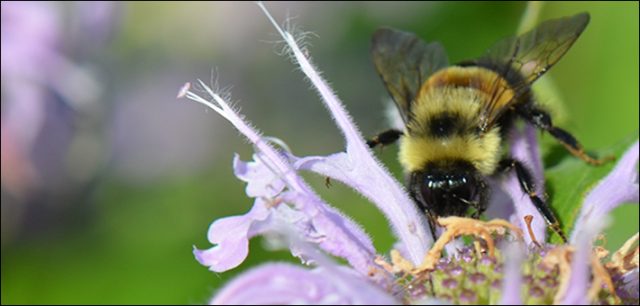02
Feb
Court Settlement Requires EPA to Review How Bee-Killing Pesticide Harms Endangered Species

(Beyond Pesticides, February 2, 2021) The U.S. Environmental Protection Agency (EPA) will evaluate the effect of the neonicotinoid insecticide imidacloprid on endangered species, after an agreement was reached between the agency and the Natural Resources Defense Council (NRDC). Imidacloprid is one of the most commonly used insecticides in the world today and, like other neonicotinoids in its chemical class, has been linked to a range of adverse impacts on wildlife and their habitat. While the agreement to the assess effects on endangered species is important, advocates note that EPA should already have conducted this review, and further, that imidacloprid and other neonicotinoids should already be banned.
NRDC’s successful lawsuit follows a separate legal challenge by the Center for Food Safety, Beyond Pesticides, beekeepers, and other environmental organizations which was settled in 2019. The judge in that case, focused on the neonicotinoids clothianidin and thiamethoxam, did not order EPA to consult with the U.S. Fish and Wildlife Service (FWS) and National Marine Fisheries Service (NMFS) (which is required when registering a pesticide in order to mitigate risks to endangered species). Instead, she directed the parties, including the plaintiffs, defendant EPA, and intervenor Bayer CropScience (the manufacturer of neonicotinoids), to move forward with a settlement conference to resolve the disputes. The end result requires EPA to remove 12 products containing neonicotinoid active ingredients.
Under the settlement reached with NRDC, EPA is required to publish a biological evaluation on imidacloprid’s effect on endangered species, and allow time for public comment and review. The agency will then be required, by June 2022, to provide an “effects determination.” Under the endangered species act, further regulation is required on a pesticide that may effect an endangered species or the habitat it relies upon. An effect determination will therefore guide a regulatory response by the agency.
NRDC remains in discussion with EPA regarding outstanding claims against two remaining neonicotinoids: dinotefuran and acetamiprid.
There is a wide range of evidence linking neonicotinoids, and imidacloprid in particular, to adverse impacts on wildlife. The chemicals have been linked to the decline of pollinators, birds, contamination of aquatic ecosystems, and birth defects and other malformations in mammals. The Task Force on Systemic Pesticides, a group consisting of 242 scientists from across the world, penned in 2018 an open letter to regulators and policymakers calling for restrictions on neonicotinoid insecticides. The scientists indicate that, “The balance of evidence strongly suggests that these chemicals are harming beneficial insects and contributing to the current massive loss of global biodiversity.”
While regulators in the European Union and Canada have made determinations that resulted in meaningful bans against neonicotinoid use, EPA has consistently dragged its feet. Over the last four years, the agency acted consistently sided with the agrichemical industry over the health of the general public and the ecosystems upon which life depends. But troubles with EPA did not start four years ago, compounding the challenge for health and environmental advocates.
Beyond Pesticides is calling on President Biden to reverse course and take EPA and other federal agencies in a new direction focused on systemic change. Join us in calling on the current administration to end the era of corporate deception in pesticide regulation. After taking action at the federal level, focus on grassroots organizing, where real change can take place.
Get involved at the community level to pass policies that protect imperiled pollinators. Right now, without adequate federal protection from toxic pesticides like imidacloprid, endangered monarch butterflies and rusty patched bumblebees need concerned communities throughout the country to step in and makes changes that give these species fighting chance. Use Beyond Pesticides’ resources and educational materials, including our BEE Protective doorknob hangers to get the word out.
All unattributed positions and opinions in this piece are those of Beyond Pesticides.
Source: NRDC press release, Center for Food Safety










